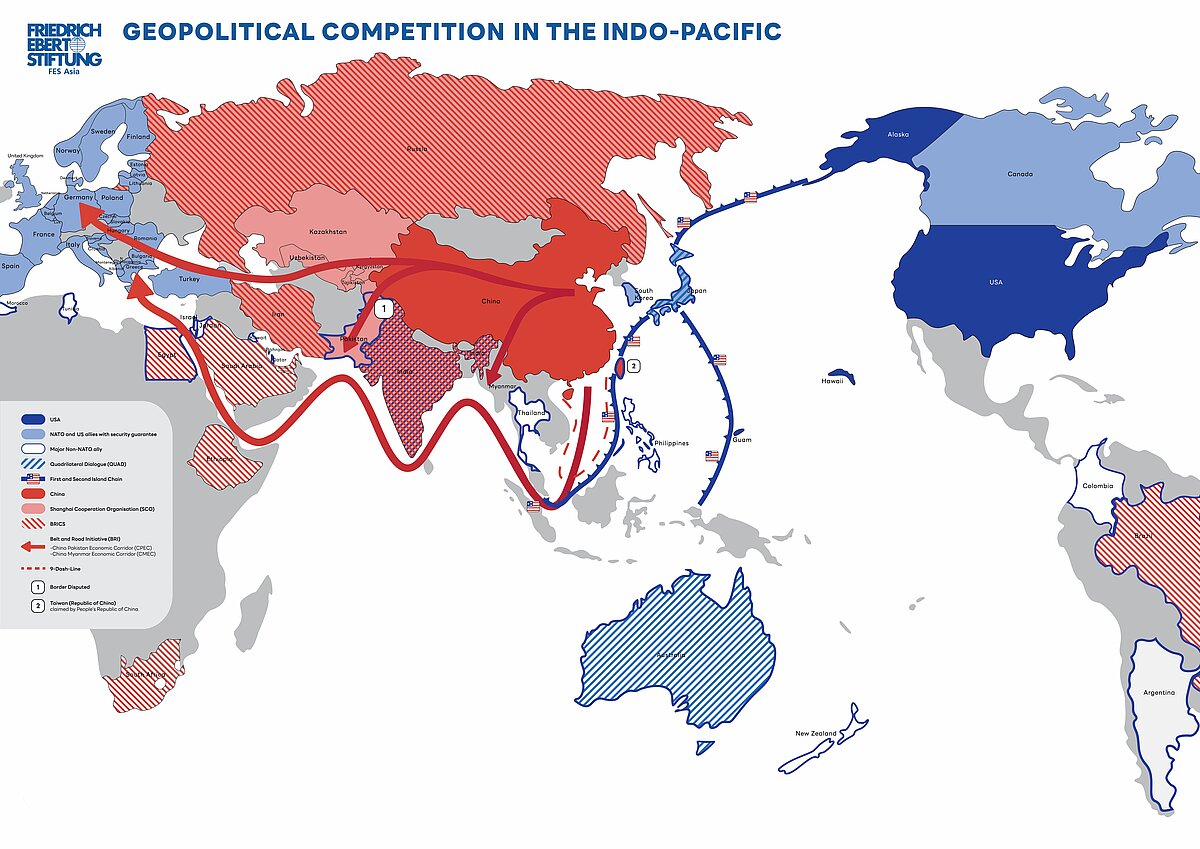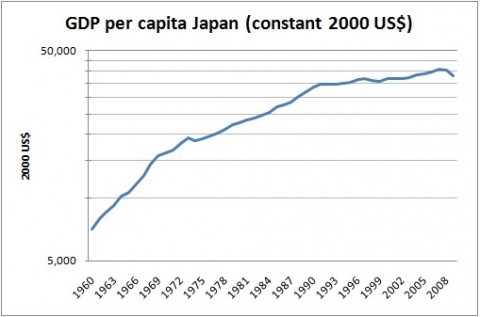The Trump Administration And The Future Of European AI Regulation

Table of Contents
Transatlantic Trade Tensions and their Impact on AI Development
The Trump administration's trade policies created significant friction between the US and the EU, impacting various sectors, including the crucial field of AI. These tensions had a direct bearing on the development and implementation of European AI regulation.
Trade Wars and Data Flows
Trade disputes, such as the imposition of tariffs and restrictions on goods and services, directly hindered the free flow of data – a cornerstone of AI development and training. The vast datasets needed to train sophisticated AI algorithms often originate from various international sources.
- Examples of specific trade disputes: The steel and aluminum tariffs imposed by the Trump administration disrupted supply chains and created uncertainty for businesses involved in AI development, impacting data access.
- Potential impact on AI research collaborations: Trade tensions hampered collaborations between US and EU researchers, limiting the sharing of data and expertise vital for advancing AI research.
- Analysis of data localization policies: The Trump administration's implicit promotion of data localization – keeping data within national borders – contrasted sharply with the EU's focus on data portability, creating further barriers to transatlantic data flow and impacting AI development.
This disruption in transatlantic data flow, a key element in AI development, significantly impacted the speed and efficacy of AI regulation development across both regions. The resulting data localization policies within the US created a divergence in approach and a fractured global landscape for transatlantic data flow. The impact of these trade wars is still being assessed but has clearly complicated the process of international AI development.
Regulatory Divergence and the Risk of Fragmentation
Differing approaches to AI regulation between the US and EU, largely shaped by the Trump administration's "light-touch" regulatory stance, pose a risk of fragmentation in the global AI market. The EU adopted a more proactive, regulatory approach, prioritizing ethical considerations and data protection, while the US favored fostering innovation through minimal intervention.
- Comparison of US and EU regulatory frameworks: The EU's AI Act, with its risk-based approach to regulating AI systems, stands in contrast to the US's more fragmented, sector-specific regulatory landscape.
- Potential negative consequences of regulatory divergence for businesses: Businesses operating internationally face the challenge of complying with differing regulations, potentially increasing costs and complexity.
- The importance of harmonization: Harmonizing regulatory frameworks is crucial for fostering a level playing field, encouraging innovation, and preventing the fragmentation of the global AI market. This regulatory divergence has long-term implications for the stability of the global AI regulation landscape.
The Trump Administration's Approach to AI and its Global Implications
The Trump administration's approach to AI, characterized by a preference for minimal regulation and a focus on national security, had significant implications for the development of European AI regulation.
Focus on Innovation vs. Regulation
The Trump administration prioritized fostering innovation in the tech sector over stringent regulation, a stark contrast to the EU's more proactive approach. This difference in philosophy significantly impacted the trajectory of both US and EU AI development.
- Examples of US policies favoring innovation over stringent regulation: The administration's push for deregulation in various sectors, including technology, aimed to create a more favorable environment for innovation but potentially at the cost of data privacy and consumer protection.
- Contrasting this with the EU's focus on ethical AI and data protection: The EU's focus on ethical AI and robust data protection measures, reflected in the GDPR and AI Act, prioritized responsible AI development, even at the potential cost of slower innovation.
- Analysis of the potential long-term effects: The contrasting approaches could lead to a divergence in AI development, with the EU potentially lagging in terms of innovation while the US potentially faces challenges regarding ethical AI development and data protection. This divergence in regulatory focus concerning AI regulation may shape the future of technological development globally.
National Security Concerns and AI Development
National security concerns played a significant role in both US and EU AI strategies. The Trump administration's emphasis on national security profoundly impacted the EU's approach to securing its own AI capabilities.
- Discussion on AI in national defense: The increased use of AI in military applications raised concerns about the ethical implications of autonomous weapons and the potential for AI technology to be misused.
- Concerns about AI technology falling into the wrong hands: Both the US and EU expressed concerns about the potential for AI technology to fall into the hands of malicious actors, prompting increased scrutiny of AI development and deployment.
- Impact on international cooperation in AI research: National security concerns can complicate international cooperation in AI research, hindering the sharing of data and expertise needed for advancements. The focus on national security by the Trump administration impacted international cooperation in the field of AI technology, leading to potential setbacks in global development.
The Future of European AI Regulation in a Post-Trump Era
The EU's proactive approach to AI regulation continues to evolve, shaped by both the experiences of the past and the need for global cooperation.
Strengthening the EU's AI Regulatory Framework
The EU's AI Act represents a significant step towards establishing a comprehensive regulatory framework for AI, addressing many of the concerns highlighted by the Trump administration's policies.
- Key features of the EU AI Act: Risk-based classification of AI systems, stringent requirements for high-risk AI applications, and a focus on transparency and accountability.
- Strategies to ensure data privacy and security: The AI Act incorporates robust data protection measures, building upon the GDPR and emphasizing responsible data handling.
- Measures to promote ethical AI development: The Act seeks to promote the development and deployment of AI systems that are ethical, transparent, and accountable. The EU AI Act aims to create a robust framework for AI regulation, prioritizing data privacy and ethical AI development.
Opportunities for International Cooperation
Despite past differences, opportunities exist for future US-EU cooperation on AI regulation, fostering a safer and more beneficial environment for global AI development.
- Areas for potential collaboration: Data privacy standards, ethical guidelines for AI development, and standards for AI safety and security.
- Benefits of a harmonized regulatory landscape: A harmonized approach could create a more predictable and efficient environment for businesses operating internationally, fostering innovation and avoiding market fragmentation.
- The role of international organizations: International organizations like the OECD can play a crucial role in facilitating cooperation and establishing global standards for AI governance. The establishment of a harmonized regulatory landscape through international cooperation is crucial for the future of global AI regulation.
Conclusion
The Trump administration's policies significantly influenced the landscape of European AI regulation, highlighting the need for a robust and adaptable regulatory framework. While the focus on innovation is important, neglecting ethical concerns and data protection can have severe consequences. The EU's proactive approach to European AI regulation, exemplified by the AI Act, serves as a model for other nations aiming to balance innovation with responsibility. Understanding the legacy of the Trump era is crucial for shaping the future of European AI regulation and fostering international cooperation to ensure a responsible and beneficial development of AI technology for all. To stay informed about the latest developments in European AI regulation, continue to follow industry news and engage in discussions surrounding ethical AI and data governance.

Featured Posts
-
 Us China Geopolitical Competition A Focus On A Key Military Base
Apr 26, 2025
Us China Geopolitical Competition A Focus On A Key Military Base
Apr 26, 2025 -
 Californias Economic Rise Overtaking Japans Gdp
Apr 26, 2025
Californias Economic Rise Overtaking Japans Gdp
Apr 26, 2025 -
 Gambling On Calamity Examining The Trend Of Betting On The Los Angeles Wildfires
Apr 26, 2025
Gambling On Calamity Examining The Trend Of Betting On The Los Angeles Wildfires
Apr 26, 2025 -
 La Fires Landlords Accused Of Price Gouging Amid Crisis
Apr 26, 2025
La Fires Landlords Accused Of Price Gouging Amid Crisis
Apr 26, 2025 -
 I Got My Switch 2 Preorder At Game Stop My Experience
Apr 26, 2025
I Got My Switch 2 Preorder At Game Stop My Experience
Apr 26, 2025
